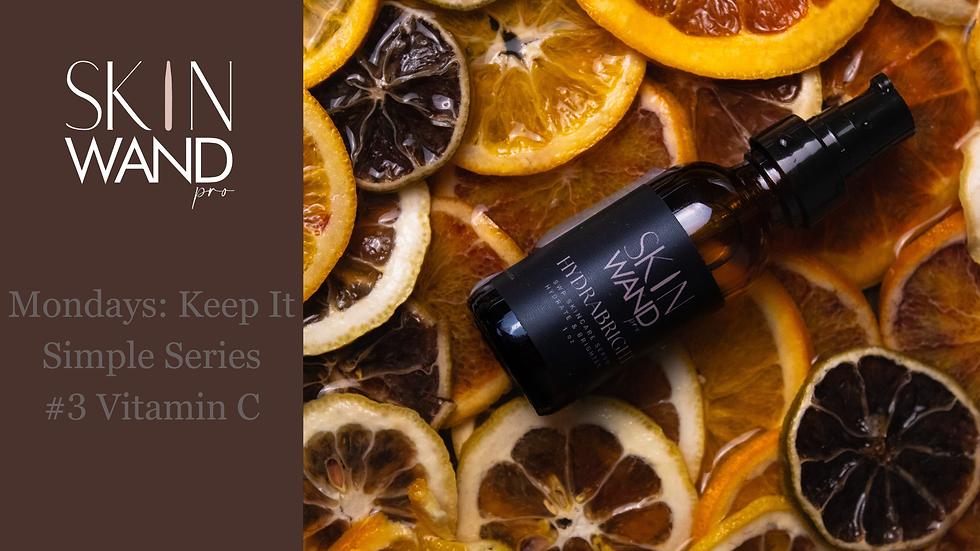Glycation & Aging
- Jessica Cooley

- Oct 22, 2022
- 2 min read

When we age, our skin loses elasticity and becomes dry and wrinkled. These visible signs of aging are the result of a natural process called glycation, or the binding of sugar molecules to proteins. This process is accelerated when there are high levels of blood sugar, as in conditions of diabetes or obesity.
What Happens During Glycation?
Glycation occurs when sugars in the bloodstream bind to proteins in the skin, causing the formation of Advanced Glycation End-Products (AGEs). AGEs damage the proteins in the skin, causing proteins to lose their elasticity and reducing the skin’s ability to repair itself. Glycation is a chemical reaction that happens naturally in the human body as we age. It occurs when a simple sugar binds with a protein, like collagen, in the skin, forming a new molecule called an “advanced glycation end-product” (AGE). The body uses sugar for energy, and it’s present in every cell. When blood sugar rises, it’s also present in the blood. Through a chemical reaction called glycation, the sugar binds to proteins, including those in the skin.
How Does Glycation Affect the Skin?
As a result of glycation, collagen and elastin fibers in the skin lose their elasticity, which leads to wrinkles, sagging and an aged appearance. Glycation is responsible for a number of skin problems, such as wrinkles, dryness and loss of elasticity. AGEs produce oxidative radicals, damaging and destroying collagen and elastin, the two main proteins responsible for the skin’s youthful appearance. Glycation and AGEs can also trigger inflammation and oxidative stress, which can lead to a decrease in overall skin health and an increase in the signs of aging.
How to Prevent Glycation?
Eat a balanced diet that includes fruits, vegetables, whole grains and legumes (beans and lentils). These foods are naturally high in antioxidants, which neutralize free radicals to prevent the damage they can cause over time. Be aware of hidden sugars in processed foods. Foods like ketchup, bread, peanut butter and salad dressing contain added sugars that can increase blood sugar levels. Stay hydrated by drinking water and limiting your intake of caffeinated beverages. Exercise regularly by getting at least 30 minutes of exercise at least three times a week. Regular exercise helps regulate blood sugar and can reduce insulin resistance. Exposure to UV light accelerates the skin damage caused by glycation, so be sure to protect your skin with sunscreen and protective clothing when you’re outside.
Bottom line
Glycation is the process by which sugar molecules attach to collagen and elastin in the skin, causing the formation of damaging AGEs. Aging is the most obvious consequence of glycation, but it can also make dark spots on the skin more noticeable and lead to wrinkles, sagging and loss of elasticity. Preventing glycation is as simple as following a healthy diet and being mindful of your sugar intake.
_edited.png)



Comments